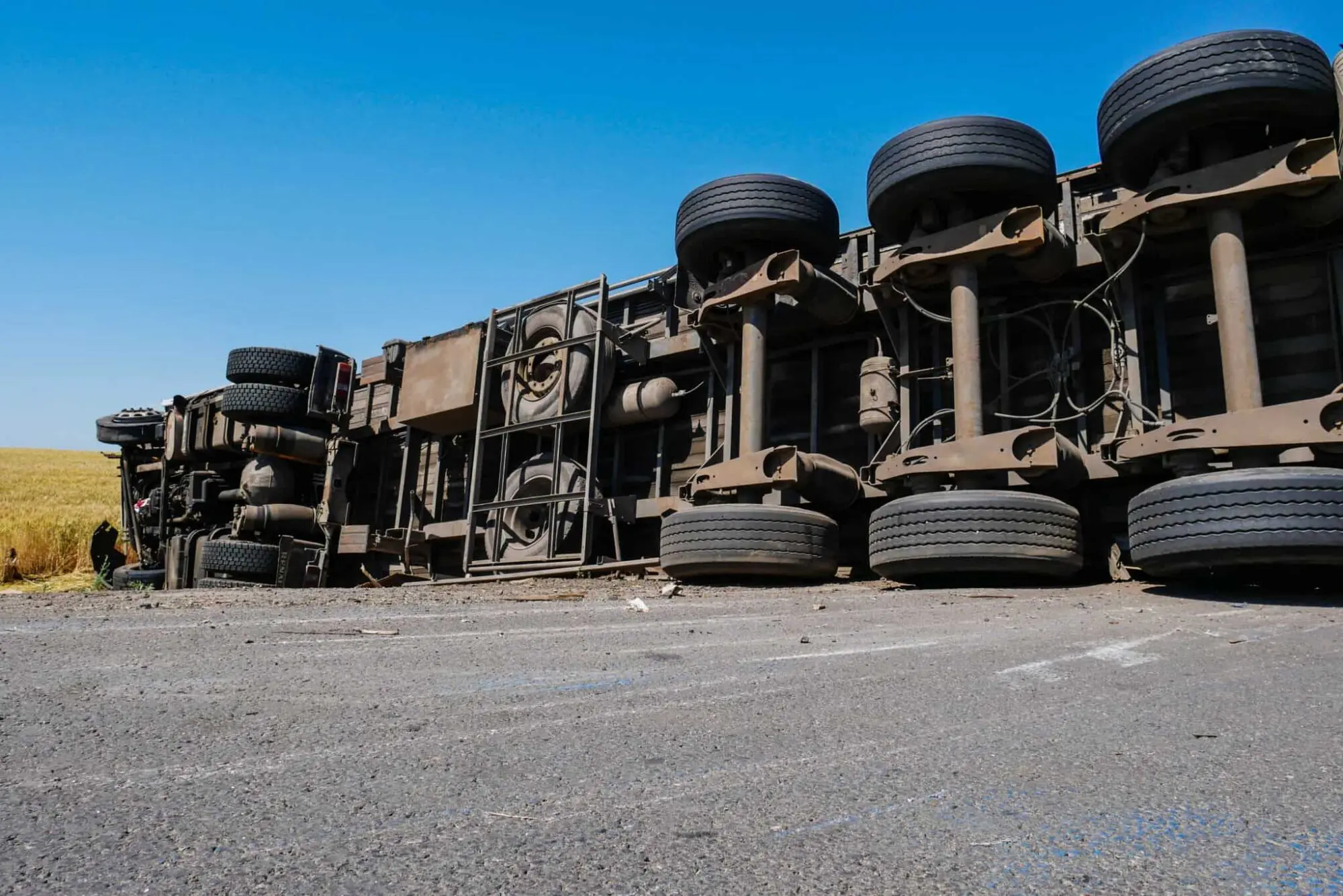Trucking Physical Damage Insurance is a type of commercial truck insurance that covers the cost of repairing or replacing your truck if it’s damaged in an incident. It usually consists of two parts: Collision Coverage and Comprehensive Coverage.
Collision Coverage pays for damage to your truck caused by an accident with another vehicle or object, or if your truck rolls over.
Comprehensive Coverage pays for damage to your truck caused by incidents other than collision, such as fire, theft, vandalism, or natural disasters like storms or floods.
Why Physical Damage Insurance Is Crucial for Truckers
Financial Protection: Trucks are significant investments, often costing tens or even hundreds of thousands of dollars. If a truck is damaged or destroyed and you don’t have insurance, you could be facing a substantial financial loss. Physical Damage Insurance helps protect you from these potentially devastating costs.
Loan/Lease Requirement: If you have financed or leased your truck, your lender or lessor will likely require you to carry Physical Damage Insurance to protect their investment. Failure to maintain the necessary insurance could result in the violation of your loan or lease agreement.
Business Continuity: If a truck is damaged and can’t be used, it can seriously impact your ability to do business, especially if you operate a small fleet. Physical Damage Insurance can help you get back on the road more quickly after an incident, reducing downtime and loss of income.
Resale Value: If you plan to sell your truck at some point, having comprehensive coverage can help ensure it’s in the best possible condition, which can increase its resale value. Potential buyers may also be reassured knowing that the truck has been insured.
Peace of Mind: Knowing that you’re protected against potential physical damage to your truck can provide significant peace of mind, allowing you to focus on running your business.
Essentially, Trucking Physical Damage Insurance is an important part of risk management for any trucking business. While it represents an ongoing cost, the potential benefits in the event of an incident can far outweigh the expense.
What Collision and Comprehensive Coverage Include
Collision Coverage applies when a truck is damaged in an accident, regardless of who is at fault. This includes collisions with other vehicles or stationary objects such as guardrails, buildings, or trees. It also covers damage from rollovers and from potholes or debris on the road.
Comprehensive Coverage includes damages from non-collision events such as theft, engine or location-based fires, vandalism (e.g., graffiti, slashed tires), natural disasters (storms, hail, floods, or earthquakes), collisions with animals, or falling objects like tree branches or building debris.
It’s important to remember that insurance policies can vary, so always review the specifics of any policy to understand exactly what is covered and what is not. Additionally, each policy will have a deductible that must be paid before the insurance coverage kicks in, and the policy will have a maximum limit that it will cover.
How Much Does Trucking Physical Damage Insurance Cost?
The cost of Physical Damage Insurance depends on several factors, including:
-
Truck Value: The more expensive your truck is, the more you’ll pay to insure it. Insuring a brand-new tractor-trailer will cost significantly more than insuring an older model.
-
Driving History: Your past claims or accident history will affect rates. A clean driving record often means lower premiums.
-
Location and Route Risk: Operating in high-crime areas or severe weather zones may result in higher premiums.
-
Deductible Amount: A higher deductible lowers your monthly premium but increases your out-of-pocket costs in case of a claim.
-
Vehicle Usage: The type of cargo you haul and how frequently you operate your truck can also affect your insurance rate.
Typical Range: For a single truck, the cost of Physical Damage Insurance can range from $1,000 to $3,000 annually, depending on the above factors. Larger fleets or high-value trucks may see even higher premiums.
How Physical Damage Insurance Compares to Other Trucking Insurance
Physical Damage Insurance specifically protects your truck and trailer—it does not cover injuries to others, damage to cargo, or liability for third-party property.
Here’s a quick comparison:
-
Primary Liability Insurance: Covers injury or property damage you cause to others.
-
Motor Truck Cargo Insurance: Covers the freight or goods you are hauling.
-
General Liability Insurance: Protects against accidents not involving your truck directly, like customer injuries at your terminal or office.
-
Bobtail or Non-Trucking Liability Insurance: Covers your truck when it’s not being used for business (e.g., traveling without a trailer).
-
Occupational Accident Insurance: Provides protection for independent drivers in case of on-the-job injuries.
Pairing Physical Damage Insurance with the above coverage types provides a more complete protection plan for your trucking business.
Which Businesses Should Have Physical Damage Insurance?
This insurance is ideal for:
-
Owner-operators (especially those financing their trucks)
-
Leased operators who are responsible for maintaining their own equipment coverage
-
Fleet owners of any size seeking to reduce risk
-
Businesses with high-value trucks or specialty equipment
-
Long-haul and regional trucking companies
If your trucks represent a major financial investment or are essential to your daily operations, Physical Damage Insurance is a must-have.
Insurance Types That Complement Physical Damage Coverage
To build a strong and comprehensive insurance portfolio, Physical Damage Insurance should be combined with:
-
Primary Auto Liability Insurance
-
Motor Truck Cargo Insurance
-
General Liability Insurance
-
Trailer Interchange Insurance
-
Non-Trucking Liability (Bobtail Insurance)
-
Occupational Accident Insurance
-
Reefer Breakdown (for refrigerated trucks)
These coverages work together to protect not only your truck but also your cargo, employees, and financial interests.
Frequently Asked Questions (FAQs)
Q1: Do I need Physical Damage Insurance if I own my truck outright?
It’s not legally required, but it’s highly recommended. Even if you don’t have a loan, your truck is a valuable asset, and without coverage, you would bear the full cost of any repairs or replacements.
Q2: Can I drop Physical Damage Insurance during the off-season?
Some insurers allow seasonal adjustments or suspensions, but be careful. If something happens while coverage is inactive, you’ll have to pay for damages out of pocket.
Q3: Is coverage required by law?
No, but if you lease or finance your truck, the lender or leasing company will usually require it. Also, many shippers expect their carriers to maintain full coverage.
Q4: Does this insurance cover trailers too?
Yes, if the trailer is listed on the policy. Trailer Interchange Insurance may be needed if you haul trailers that you don’t own.
Final Thoughts
Trucking Physical Damage Insurance is a core part of protecting your trucking business investment. Whether you’re an owner-operator or run a growing fleet, the road ahead is full of unpredictable risks—from collisions to natural disasters. This insurance helps ensure that when accidents happen, your trucks—and your business—can bounce back faster and stronger.
If you need help customizing your coverage or reviewing your policy, reach out to one of our licensed insurance agents today. We’ll make sure you’re fully protected for the road ahead.


